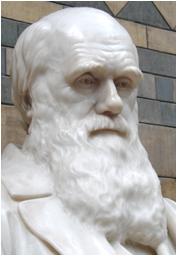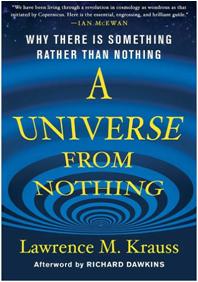On the Theory of Evolution Versus the Concept of Evolution: Three Observations
…Or Why the Notion that “The Theory of Evolution is Not an Explanation for the Origin of Life” is Wrong
Response to Rice et al. (2010)
By Guillermo Paz-y-Miño-C. and Avelina Espinosa
…the link of life to primordial chemistry was already evident to Darwin, who in 1871 corresponded with Joseph Dalton Hooker:
‘… it is often said that all the conditions for the first production of a living being are now present, which could ever have been present. But if (and oh what a big if) we could conceive in some warm little pond with all sort of ammonia and phosphoric salts, -light, heat, electricity present, that a protein compound was chemically formed, ready to undergo still more complex changes, at the present such matter would be instantly devoured, or absorbed, which would not have been the case before living creatures were formed…’
Above: Composite image of Charles Darwin’s letter to Joseph Dalton Hooker (1871). Click on image to enlarge. Copyright Cambridge University Library, from Darwin Correspondence Project
ABSTRACT
Publish on Evolution Education and Outreach, Volume 4, Number 2, 2011, 308-312, DOI: 10.1007/s12052-010-0299-9
Here we address three misconceptions stated by Rice et al. in their observations of our article Paz-y-Miño-C and Espinosa (Evo Edu Outreach 2:655–675, 2009), published in Evolution Education and Outreach. The five authors titled their note “The Theory of Evolution is Not an Explanation for the Origin of Life.”
First, we argue that it is fallacious to believe that because the formulation of the theory of evolution, as conceived in the 1800s, did not include an explanation for the origin of life, nor of the universe, the concept of evolution would not allow us to hypothesize the possible beginnings of life and its connections to the cosmos. Not only Stanley Miller’s experiments of 1953 led scientists to envision a continuum from the inorganic world to the origin and diversification of life (see Nicholas Wade tribute to Miller in The New York Times), but also Darwin’s own writings of 1871 (see transcript and letter image above).
Second, to dismiss the notion of Rice et al. that evolution does not provide explanations concerning the universe or the cosmos, we identify compelling scientific discussions on the topics: Science and the Concept of Evolution: From the Big Bang to the Origin and Evolution of Life (Zaikowski et al. Evo Edu Outreach 1:65–73, 2008), Cosmic Evolution (Krauss Evo Edu Outreach 3:193–197, 2010), Charles Darwin and the Origin of Life (Peretó et al. Orig Life Evol Biosph 39:395–406, 2009), and Darwin’s Warm Little Pond Revisited: From Molecules to the Origin of Life (Follmann and Brownson (Naturwissenschaften 96:1265–1292, 2009).
 Charles Darwin (photo © left G. Paz-y-Miño-C. 2010, British Museum of Natural History, London; for excellent information on The Complete Work of Charles Darwin visit Darwin Online and the Darwin Correspondence Project).
Charles Darwin (photo © left G. Paz-y-Miño-C. 2010, British Museum of Natural History, London; for excellent information on The Complete Work of Charles Darwin visit Darwin Online and the Darwin Correspondence Project).
Third, although we acknowledge that the term Darwinism may not be inclusive of all new discoveries in evolution, and also that creationists and Intelligent Designers hijack the term to portray evolution as ideology, we demonstrate that there is no statistical evidence suggesting that the word Darwinism interferes with public acceptance of evolution, nor does the inclusion of the origin of life or the universe within the concept of evolution.
We examine the epistemological and empirical distinction between the theory of evolution and the concept of evolution and conclude that, although the distinction is important, it should not compromise scientific logic.
To access full article click on Evo Edu Outreach, Volume 4, 2011, Number 2, 308-312 [PDF].
For a critical analysis of the Rice et al. (2010) article click on Lazcano Antonio & Peretó Juli (2010) Should the Teaching of Biological Evolution Include the Origin of Life? Volume 3, Number 4, 661-667 Evol Edu & Outreach
For related articles published by Guillermo Paz-y-Miño-C and Avelina Espinosa in Evolution Education and Outreach click on Related Scientific Articles
Recommended Book: A Universe From Nothing: Why There Is Something Rather Than Nothing, by Lawrence M. Krauss.
The book explores the concept of Cosmic Evolution
See article on Lawrence M. Krauss, There’s More to Nothing Than We Knew, by Dennis Overbye from The New York Times.


You must be logged in to post a comment.